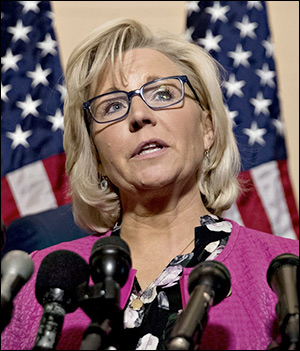By Jim Ellis — Wednesday, March 20, 2024
Senate
Ohio: Moreno Wins Big — Chalk up a big mistake for the polling community. The polls prior to yesterday’s primary predicted very tight Republican Senate contest, but it proved to be quite the opposite as businessman Bernie Moreno won in a landslide. Moreno will now move into the long general election cycle against three-term Sen. Sherrod Brown (D).With almost the entire state reporting at this writing, Moreno would have been nominated even if Ohio were a runoff state. He captured majority support, at 50.6 percent. State Sen. Matt Dolan (R-Chagrin Falls), who several polls had projected to be leading the race, finished a distant second with 32.8 percent. Secretary of State Frank LaRose, the field’s only statewide official who was perceived to be falling off the pace as the election drew near, lagged in third position recording just 16.6 percent support.
The result is another big win for former President Donald Trump who, along with Sen. J.D. Vance (R-OH), had endorsed Moreno. The victory margin was so complete that Moreno carried all of the state’s 88 counties. Turnout was heavily Republican. Though he was in a three-way race in the Republican primary and Sen. Brown was unopposed for the Democratic nomination, Moreno still received more votes last night than the Democratic incumbent.
House
CA-20: Special Election Deja Vu — Last night’s CA-20 special election, held as the first step in replacing House Speaker Kevin McCarthy (R), unfolded as a virtual carbon copy of the original March 5 regular primary. As in that election, it appears that Assemblyman Vince Fong (R-Bakersfield), who is well over 40 percent support in early returns, will advance into the special general election scheduled for May 21. Just like in the coming November regular general election, he will face fellow Republican and Tulare County Sheriff Mike Bourdeaux in the special general.
The special general winner will immediately take the seat and serve the balance of the current term. Regardless of the outcome in May, Fong and Bourdeaux will face each other again on Nov. 5.
Illinois: Rep. Bost in Close Finish — While almost all of the congressional primary challengers lost in landslide proportions to the veteran incumbents, southern Illinois Congressman Mike Bost (R-Murphysboro) looks to have only eked out a close renomination win over 2022 Republican gubernatorial nominee and ex-state Sen. Darren Bailey (R), but the turnout projection totals suggest that as many as 30,000 votes could still be outstanding. At this writing, with 75 percent of the estimated number of total votes having been counted, Rep. Bost has only a 51.8 – 48.2 percent advantage, a margin of 3,362 votes.
The county votes were polarized. Two small counties are not reporting any votes as yet, while Bost has won 17 counties to Bailey’s 15. In virtually every county, the vote produced lopsided leads for either man. It is probable that Rep. Bost’s advantage will hold, but the final result could become much closer.
Rep. Danny Davis (D-Chicago), who faced four challengers, managed to break the majority threshold with a 53 percent total. Because the opposition vote was evenly spread among his challengers, his closest competitor had just under 22 percent. Reps. Jesus “Chuy” Garcia (D-Chicago) and Bill Foster (D-Naperville) also faced credible opposition, but both won easily.
In the Quad Cities region, retired Circuit Judge Joe McGraw (R) will now challenge freshman Rep. Eric Sorensen (D-Moline) in what should be a competitive general election.
Ohio: Key House Races Also on Ballot — The top House primary attraction was the special primary for the vacant 6th Congressional District where state Sen. Michael Rulli (R-Salem) and state Rep. Reggie Stoltzfus (R-Delaware) battled to replace resigned Rep. Bill Johnson (R). Since this is a partisan special election, the winner advances to a June 11 general election. The result was close most of the evening, but Sen. Rulli pulled away in the final count to score a 49-41 percent win.
Highly competitive crowded battles are underway in the open 2nd District from which Rep. Brad Wenstrup (R-Hillsboro) is retiring. Three self-funding businessmen led the crowded field, and concrete company owner David Taylor defeated entrepreneurs Tim O’Hara and Larry Kidd by a 25-22-19 percent split. Taylor’s victory last night virtually assures him of winning the seat in November in what is Ohio’s safest Republican seat.
The other major primary occurred in the Toledo anchored 9th District where Republican state Rep. Derek Merrin (R-Monclova) and former state Rep. Craig Reidel battled for the nomination after 2022 nominee J.R. Majewski dropped out of the race. The race went Merrin’s way with a 52-34 percent victory margin. The state representative now faces 21-term incumbent Marcy Kaptur (D-Toledo) in the general election in what should be a highly competitive election in a district the FiveThirtyEight data organization rates as R+6.
In the Akron-based 13th CD, former state Sen. Kevin Coughlin (R) easily defeated local City Councilman Chris Banweg. Coughlin will now challenge freshman Rep. Emilia Sykes (D-Akron) in another competitive Ohio general election campaign.







